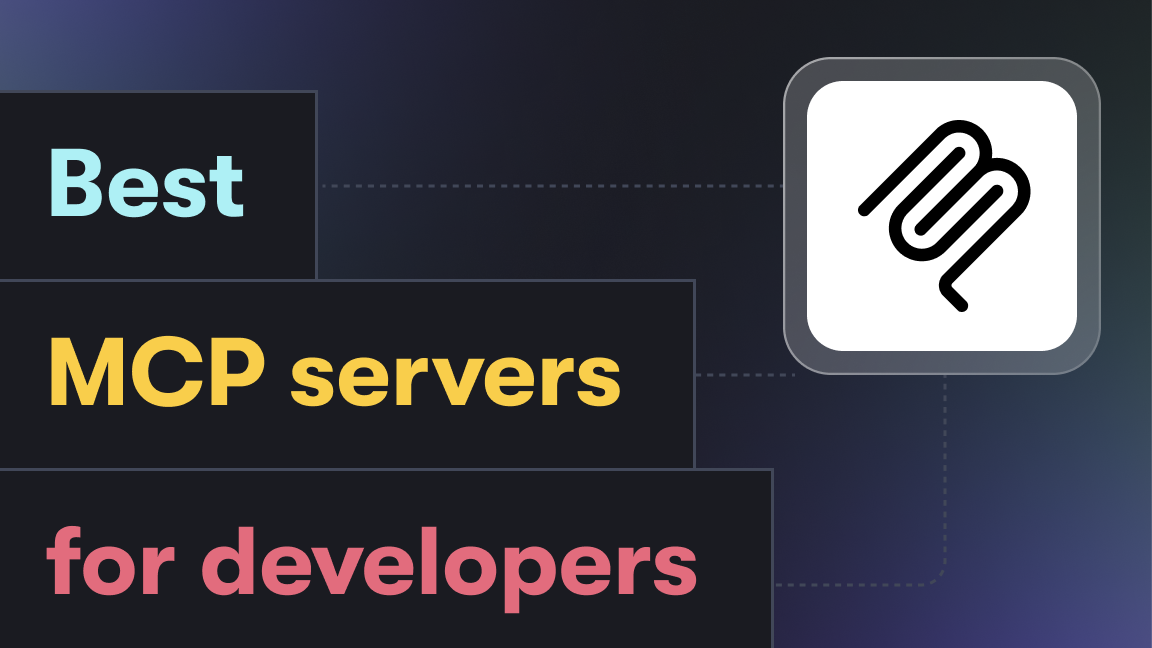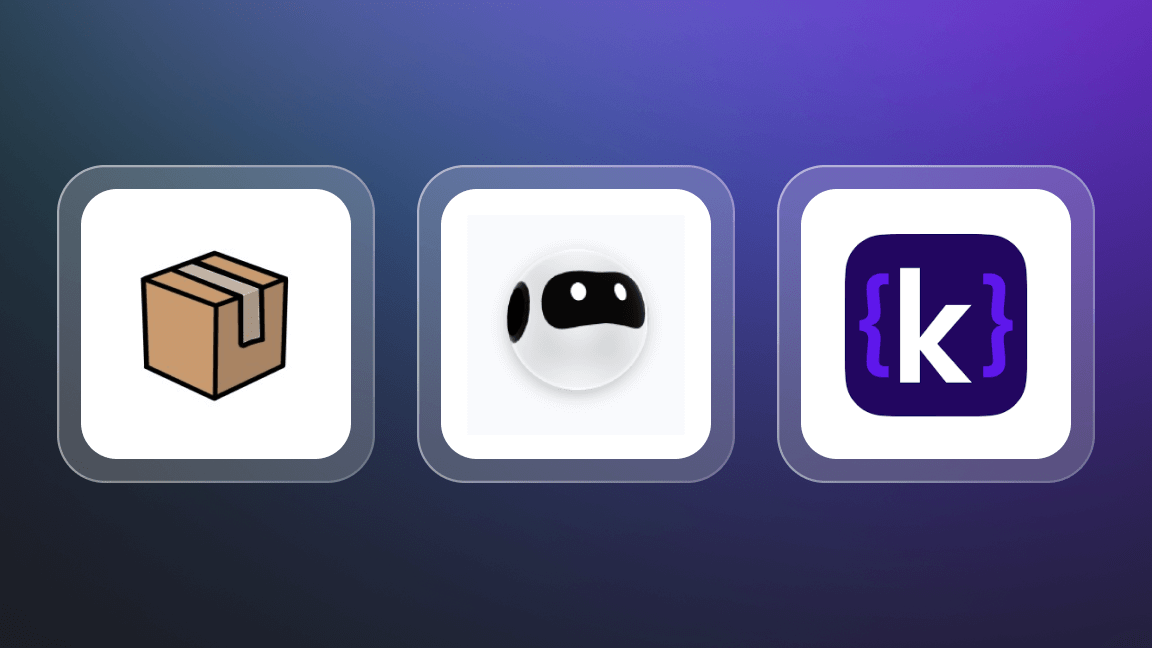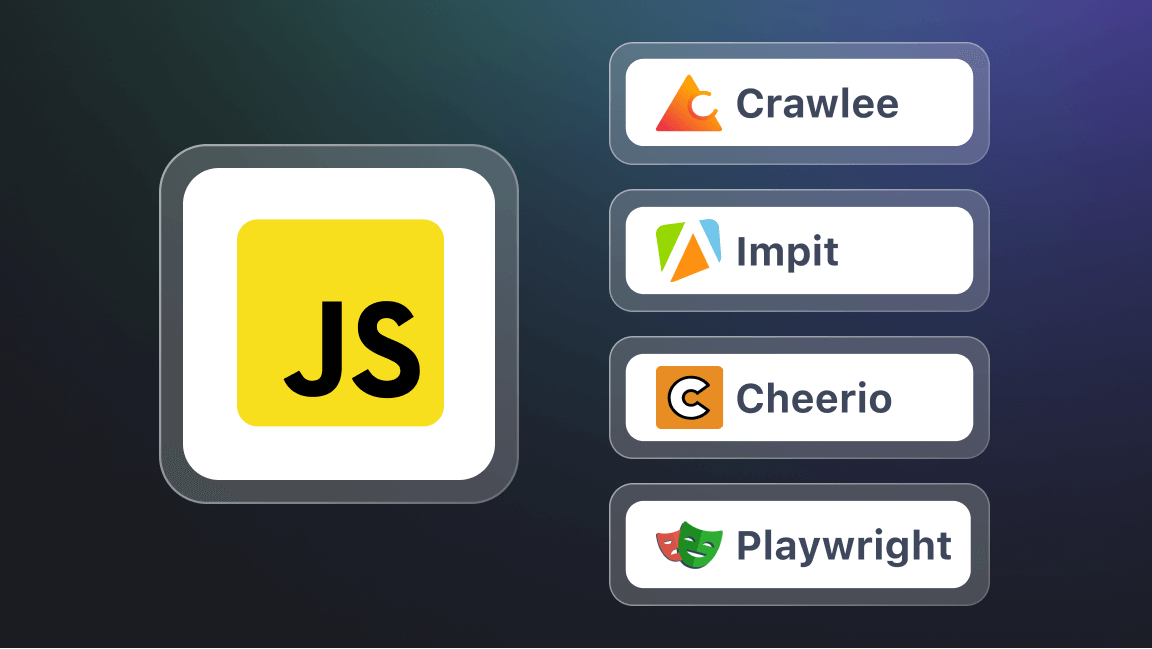Hey, we're Apify. You can build, deploy, share, and monitor your scrapers and crawlers on the Apify platform. Check us out.
If you're tired of the limitations and costs of proprietary web scraping tools or being locked into a single vendor, open-source web crawlers and scrapers offer a flexible, customizable alternative.
But not all open-source tools are the same.
Some are full-fledged libraries capable of handling large-scale data extraction projects, while others excel at dynamic content or are ideal for smaller, lightweight tasks. The right tool depends on your project’s complexity, the type of data you need, and your preferred programming language.
The libraries, frameworks, and SDKs we cover here take into account the diverse needs of developers, so you can choose a tool that meets your requirements.
What are open-source web crawlers and web scrapers?
Open-source web crawlers and scrapers let you adapt code to your needs without the cost of licenses or restrictions. Crawlers gather broad data, while scrapers target specific information. Open-source solutions like the ones below offer community-driven improvements, flexibility, and scalability—free from vendor lock-in.

Top 11 open-source web crawlers and scrapers in 2024
1. Crawlee
Language: Node.js, Python | GitHub: 15.4K+ stars | link
Crawlee is a complete web scraping and browser automation library designed for quickly and efficiently building reliable crawlers. With built-in anti-blocking features, it makes your bots look like real human users, reducing the likelihood of getting blocked.
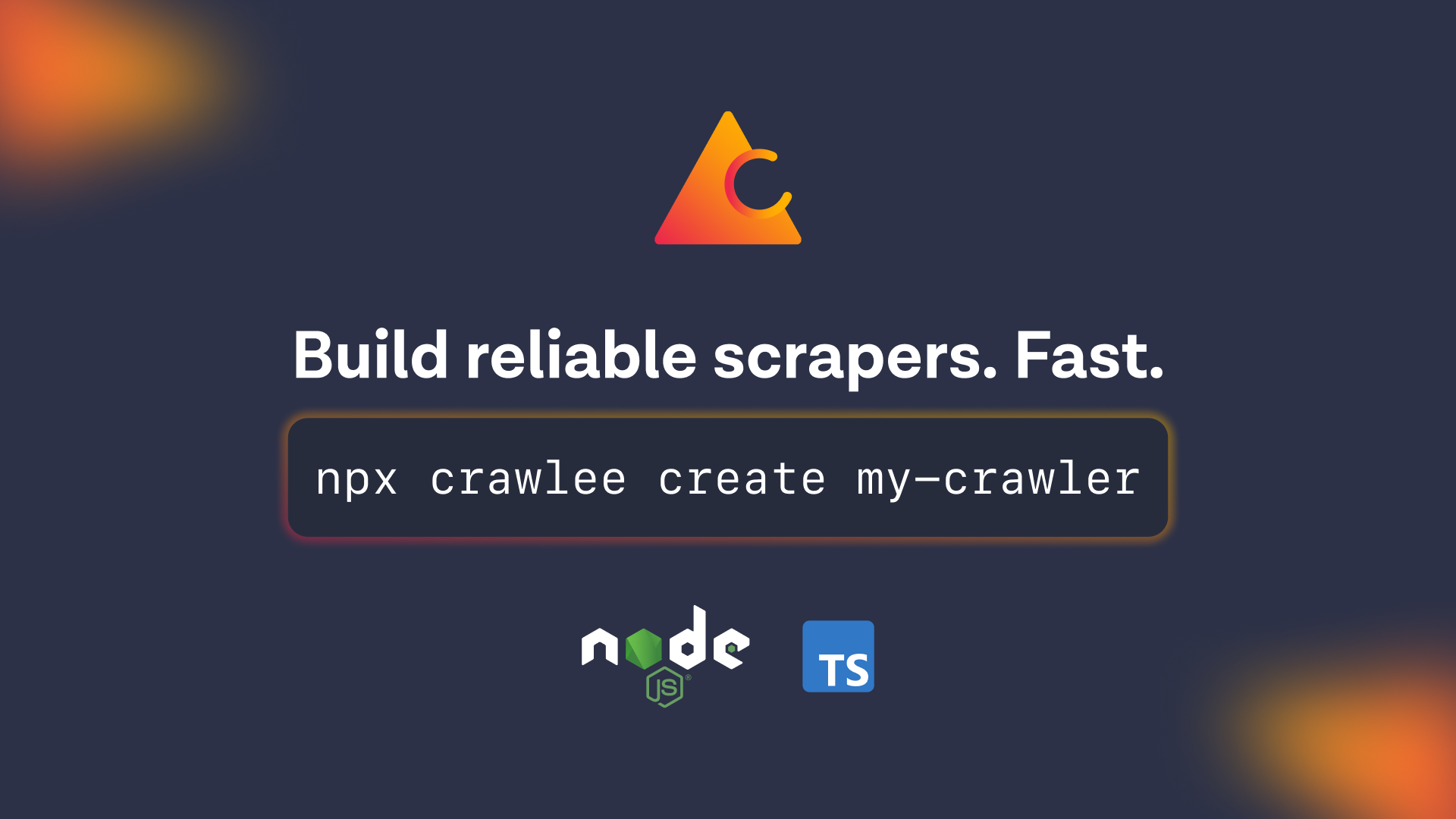
Available in both Node.js and Python, Crawlee offers a unified interface that supports HTTP and headless browser crawling, making it versatile for various scraping tasks. It integrates with libraries like Cheerio and Beautiful Soup for efficient HTML parsing and headless browsers like Puppeteer and Playwright for JavaScript rendering.
The library excels in scalability, automatically managing concurrency based on system resources, rotating proxies to enhance efficiency, and employing human-like browser fingerprints to avoid detection. Crawlee also ensures robust data handling through persistent URL queuing and pluggable storage for data and files.
Pros:
- Easy switching between simple HTTP request/response handling and complex JavaScript-heavy pages by changing just a few lines of code.
- Built-in sophisticated anti-blocking features like proxy rotation and generation of human-like fingerprints.
- Integrating tools for common tasks like link extraction, infinite scrolling, and blocking unwanted assets, along with support for both Cheerio and JSDOM, provides a comprehensive scraping toolkit right out of the box.
Cons:
- Its comprehensive feature set and the requirement to understand HTTP and browser-based scraping can create a steep learning curve.
Best for: Crawlee is ideal for developers and teams seeking to manage simple and complex web scraping and automation tasks in JavaScript/TypeScript and Python. It is particularly effective for scraping web applications that combine static and dynamic pages, as it allows easy switching between different types of crawlers to handle each scenario.

2. Scrapy
Language: Python | GitHub: 52.9K stars | link
Scrapy is one of the most complete and popular web scraping frameworks within the Python ecosystem. It is written using Twisted, an event-driven networking framework, giving Scrapy asynchronous capabilities.
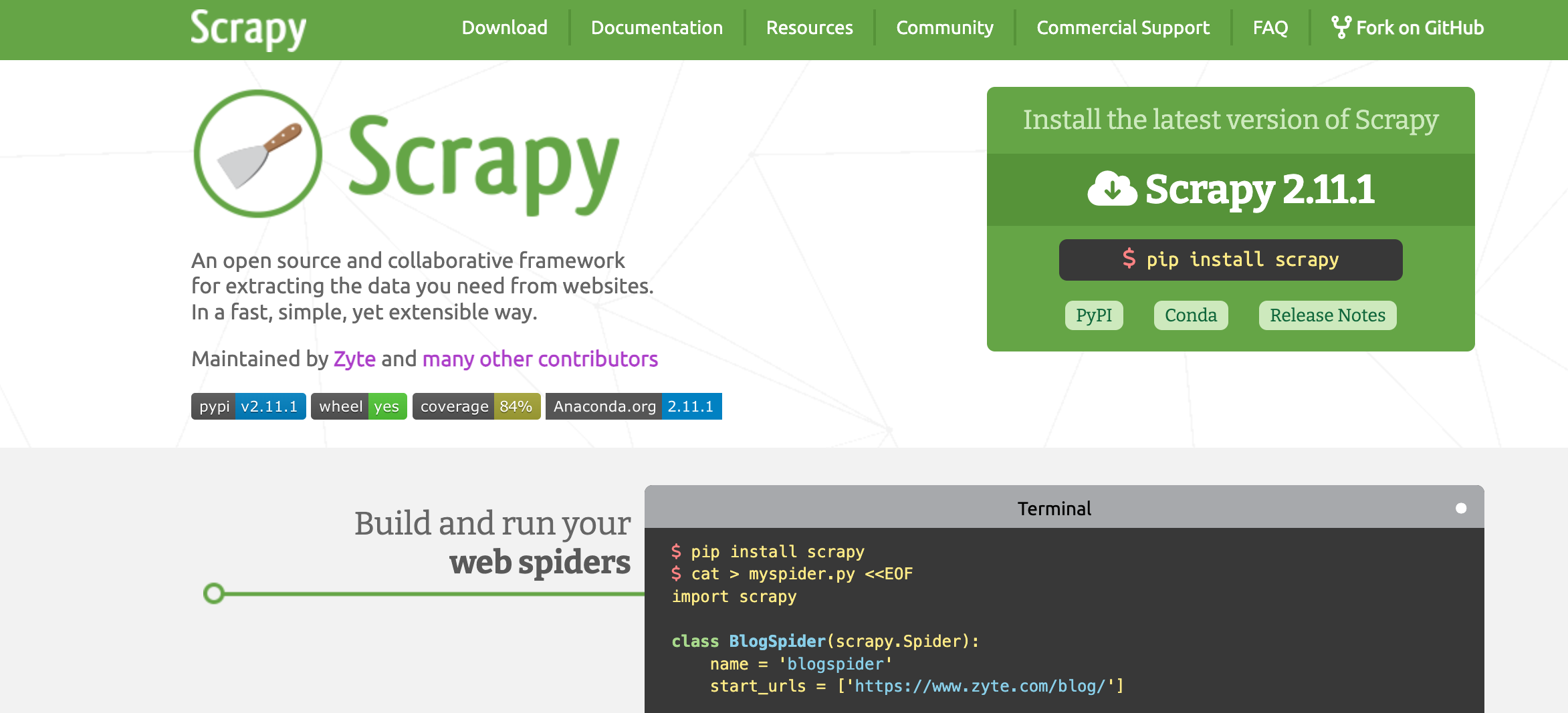
As a comprehensive web crawling framework designed specifically for data extraction, Scrapy provides built-in support for handling requests, processing responses, and exporting data in multiple formats, including CSV, JSON, and XML.
Its main drawback is that it cannot natively handle dynamic websites. However, you can configure Scrapy with a browser automation tool like Playwright or Selenium to unlock these capabilities.
Pros:
- Significant performance boost due to its asynchronous nature.
- Specifically designed for web scraping, providing a robust foundation for such tasks.
- Extensible middleware architecture makes adjusting Scrapy’s capabilities to fit various scraping scenarios easy.
- Supported by a well-established community with a wealth of resources available online.
Cons:
- Steep learning curve, which can be challenging for less experienced web scraping developers.
- Lacks the ability to handle content generated by JavaScript natively, requiring integration with tools like Selenium or Playwright to scrape dynamic pages.
- More complex than necessary for simple and small-scale scraping tasks.
Best for: Scrapy is ideally suited for developers, data scientists, and researchers embarking on large-scale web scraping projects who require a reliable and scalable solution for extracting and processing vast amounts of data.

3. MechanicalSoup
Language: Python | GitHub: 4.7K+ stars | link
MechanicalSoup is a Python library designed to automate website interactions. It provides a simple API to access and interact with HTML content, similar to interacting with web pages through a web browser, but programmatically. MechanicalSoup essentially combines the best features of libraries like Requests for HTTP requests and Beautiful Soup for HTML parsing.
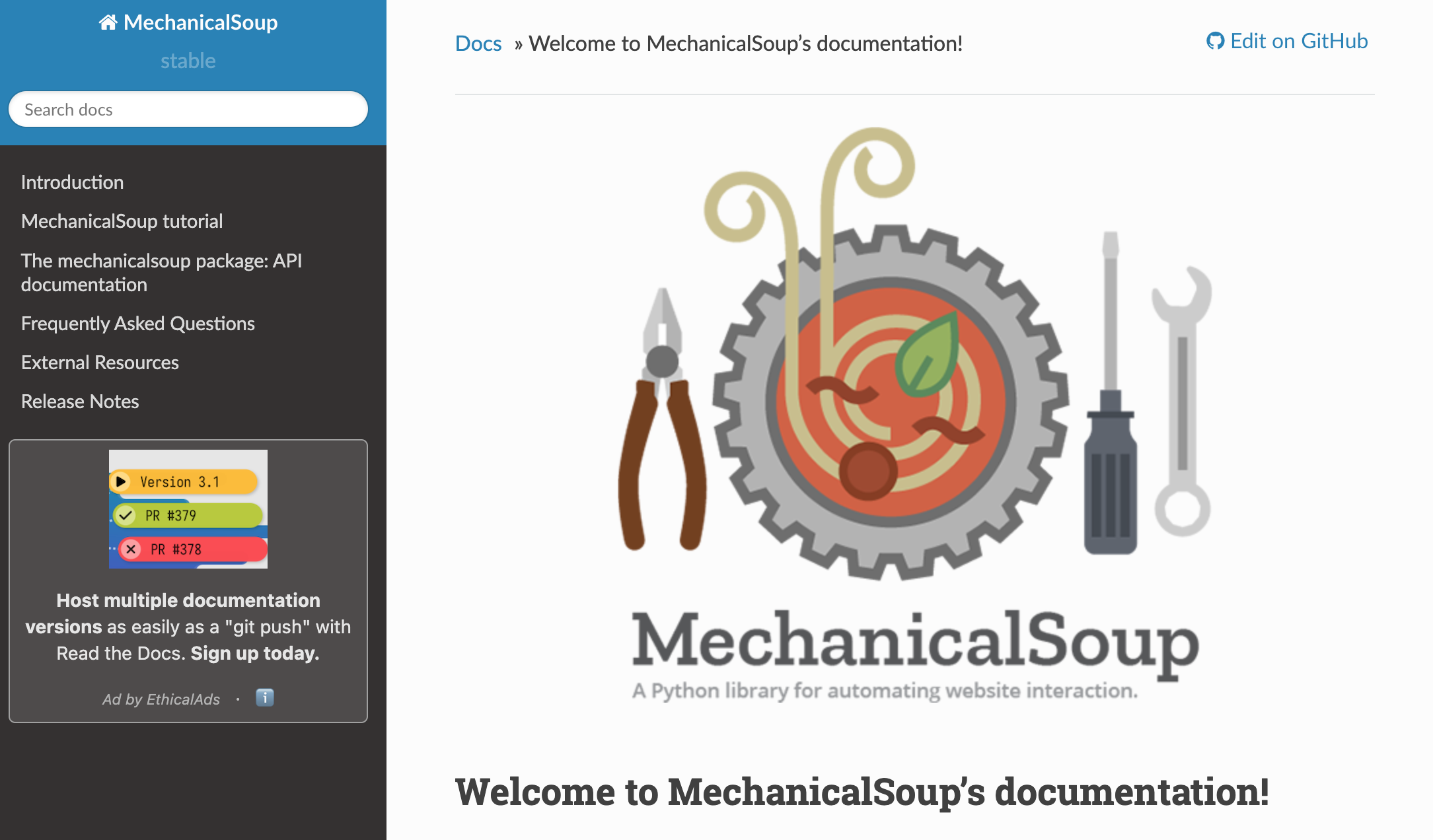
Now, you might wonder when to use MechanicalSoup over the traditional combination of BS4+ Requests. MechanicalSoup provides some distinct features particularly useful for specific web scraping tasks. These include submitting forms, handling login authentication, navigating through pages, and extracting data from HTML.
MechanicalSoup makes it possible by creating a StatefulBrowser object in Python that can store cookies and session data and handle other aspects of a browsing session.
However, while MechanicalSoup offers some browser-like functionalities akin to what you'd expect from a browser automation tool such as Selenium, it does so without launching an actual browser. This approach has its advantages but also comes with certain limitations, which we'll explore next:
Pros:
- Great choice for simple automation tasks such as filling out forms and scraping data from pages that do not require JavaScript rendering.
- Lightweight tool that interacts with web pages through requests without a graphical browser interface. This makes it faster and less demanding on system resources.
- Directly integrates Beautiful Soup, offering all the benefits you would expect from BS4, plus some extra features.
Cons:
- Unlike real browser automation tools like Playwright and Selenium, MechanicalSoup cannot execute JavaScript. Many modern websites require JavaScript for dynamic content loading and user interactions, which MechanicalSoup cannot handle.
- Unlike Selenium and Playwright, MechanicalSoup does not support advanced browser interactions such as moving the mouse, dragging and dropping, or keyboard actions that might be necessary to retrieve dates from more complex websites.
Best for: MechanicalSoup is a more efficient and lightweight option for more basic scraping tasks, especially for static websites and those with straightforward interactions and navigation.
4. Node Crawler
Language: Node.js | GitHub: 6.7K+ stars | link
Node Crawler, often referred to as 'Crawler,' is a popular web crawling library for Node.js. At its core, Crawler utilizes Cheerio as the default parser, but it can be configured to use JSDOM if needed. The library offers a wide range of customization options, including robust queue management that allows you to enqueue URLs for crawling while it manages concurrency, rate limiting, and retries.
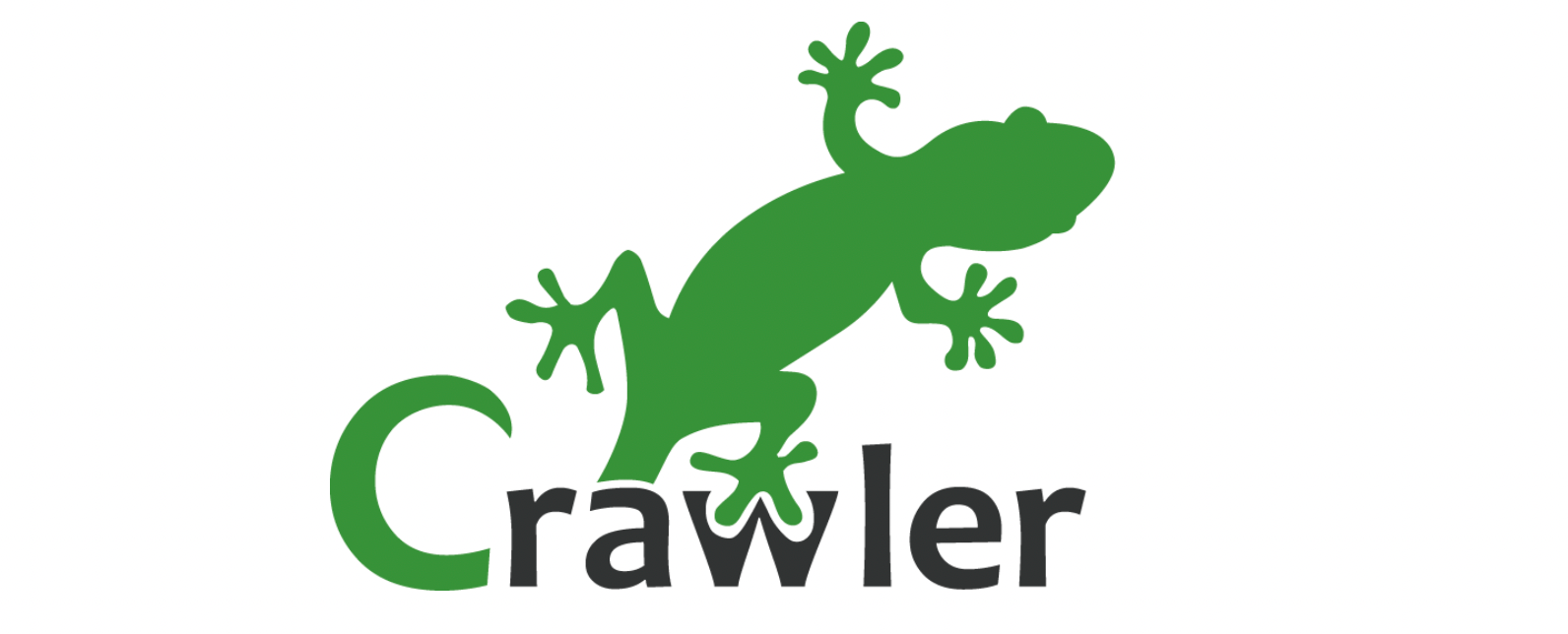
Advantages:
- Built on Node.js, Node Crawler excels at efficiently handling multiple, simultaneous web requests, which makes it ideal for high-volume web scraping and crawling.
- Integrates directly with Cheerio (a fast, flexible, and lean implementation of core jQuery designed specifically for the server), simplifying the process of HTML parsing and data extraction.
- Provides extensive options for customization, from user-agent strings to request intervals, making it suitable for a wide range of web crawling scenarios.
- Easy to set up and use, even for those new to Node.js or web scraping.
Disadvantages:
- Does not handle JavaScript rendering natively. For dynamic JavaScript-heavy sites, you need to integrate it with something like Puppeteer or a headless browser.
- While Node Crawler simplifies many tasks, the asynchronous model and event-driven architecture of Node.js can present a learning curve for those unfamiliar with such patterns.
Best for: Node Crawler is a great choice for developers familiar with the Node.js ecosystem who need to handle large-scale or high-speed web scraping tasks. It provides a flexible solution for web crawling that leverages the strengths of Node.js's asynchronous capabilities.
5. Selenium
Language: Multi-language | GitHub: 30.6K+ stars | link
Selenium is a widely-used open-source framework for automating web browsers. It allows developers to write scripts in various programming languages to control browser actions. This makes it suitable for crawling and scraping dynamic content. Selenium provides a rich API that supports multiple browsers and platforms, so you can simulate user interactions like clicking buttons, filling forms, and navigating between pages. Its ability to handle JavaScript-heavy websites makes it particularly valuable for scraping modern web applications.

Advantages:
- Cross-browser support: Works with all major browsers (Chrome, Firefox, Safari, etc.), allowing for extensive testing and scraping.
- Dynamic content handling: Capable of interacting with JavaScript-rendered content, making it effective for modern web applications.
- Rich community and resources: A large ecosystem of tools and libraries that enhance its capabilities.
Disadavantages:
- Resource-intensive: Running a full browser can consume significant system resources compared to headless solutions.
- Steeper learning curve: Requires understanding of browser automation concepts and may involve complex setup for advanced features.
Best for: Selenium is ideal for developers and testers needing to automate web applications or scrape data from sites that heavily rely on JavaScript. Its versatility makes it suitable for both testing and data extraction tasks.
6. Heritrix
Language: Java | GitHub: 2.8K+ stars | link
Heritrix is open-source web crawling software developed by the Internet Archive. It is primarily used for web archiving - collecting information from the web to build a digital library and support the Internet Archive's preservation efforts.
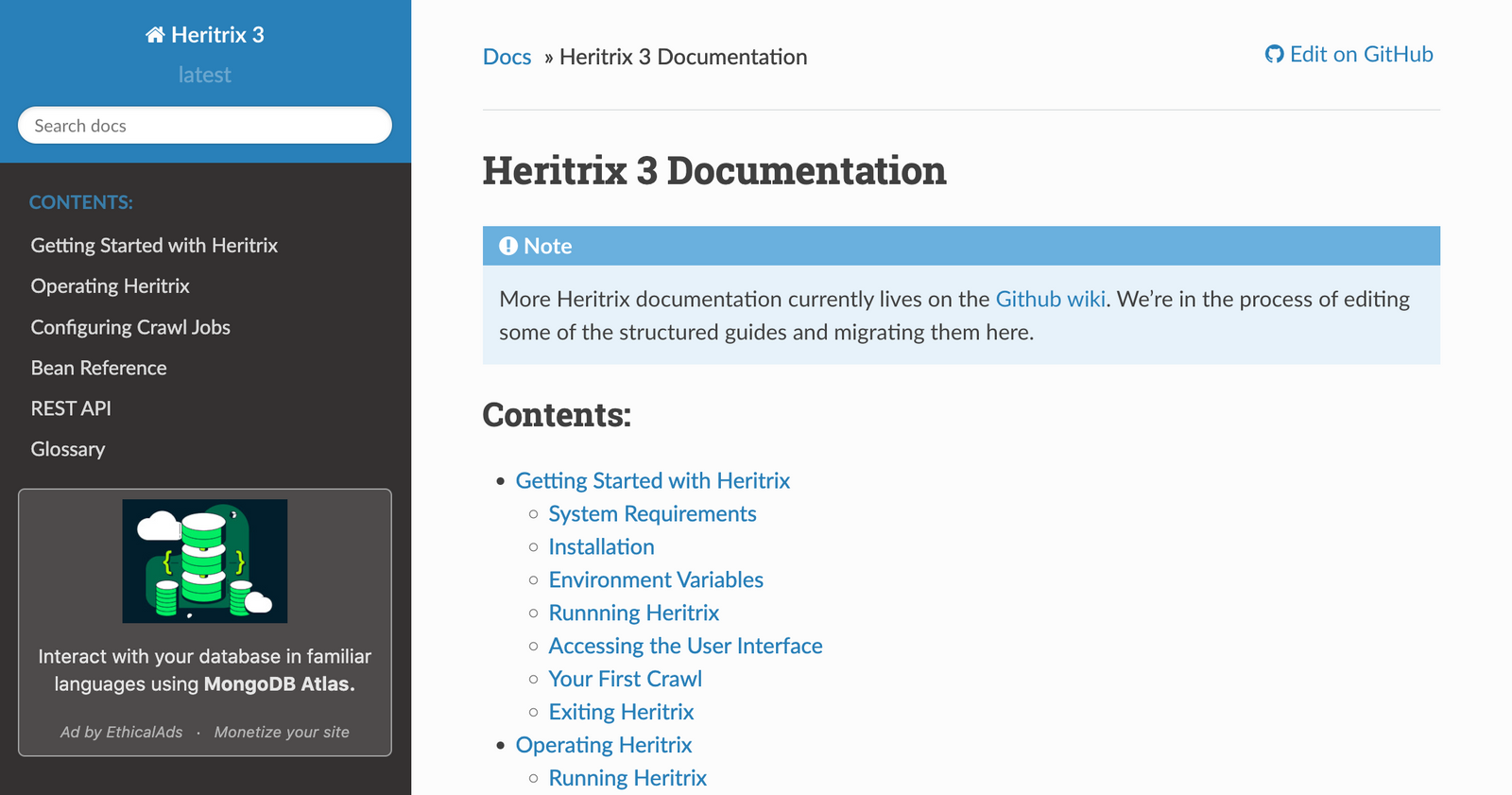
Advantages:
- Optimized for large-scale web archiving, making it ideal for institutions like libraries and archives needing to preserve digital content systematically.
- Detailed configuration options that allow users to customize crawl behavior deeply, including deciding which URLs to crawl, how to treat them, and how to manage the data collected.
- Able to handle large datasets, which is essential for archiving significant web portions.
Disadvantages:
- As it is written in Java, running Heritrix might require more substantial system resources than lighter, script-based crawlers, and it might limit usability for those unfamiliar with Java.
- Optimized for capturing and preserving web content rather than extracting data for immediate analysis or use.
- Does not render JavaScript, which means it cannot capture content from websites that rely heavily on JavaScript for dynamic content generation.
Best for: Heritrix is best suited for organizations and projects that aim to archive and preserve digital content on a large scale, such as libraries, archives, and other cultural heritage institutions. Its specialized nature makes it an excellent tool for its intended purpose but less adaptable for more general web scraping needs.
7. Apache Nutch
Language: Java | GitHub: 2.9K+ stars | link
Apache Nutch is an extensible open-source web crawler often used in fields like data analysis. It can fetch content through protocols such as HTTPS, HTTP, or FTP and extract textual information from document formats like HTML, PDF, RSS, and ATOM.
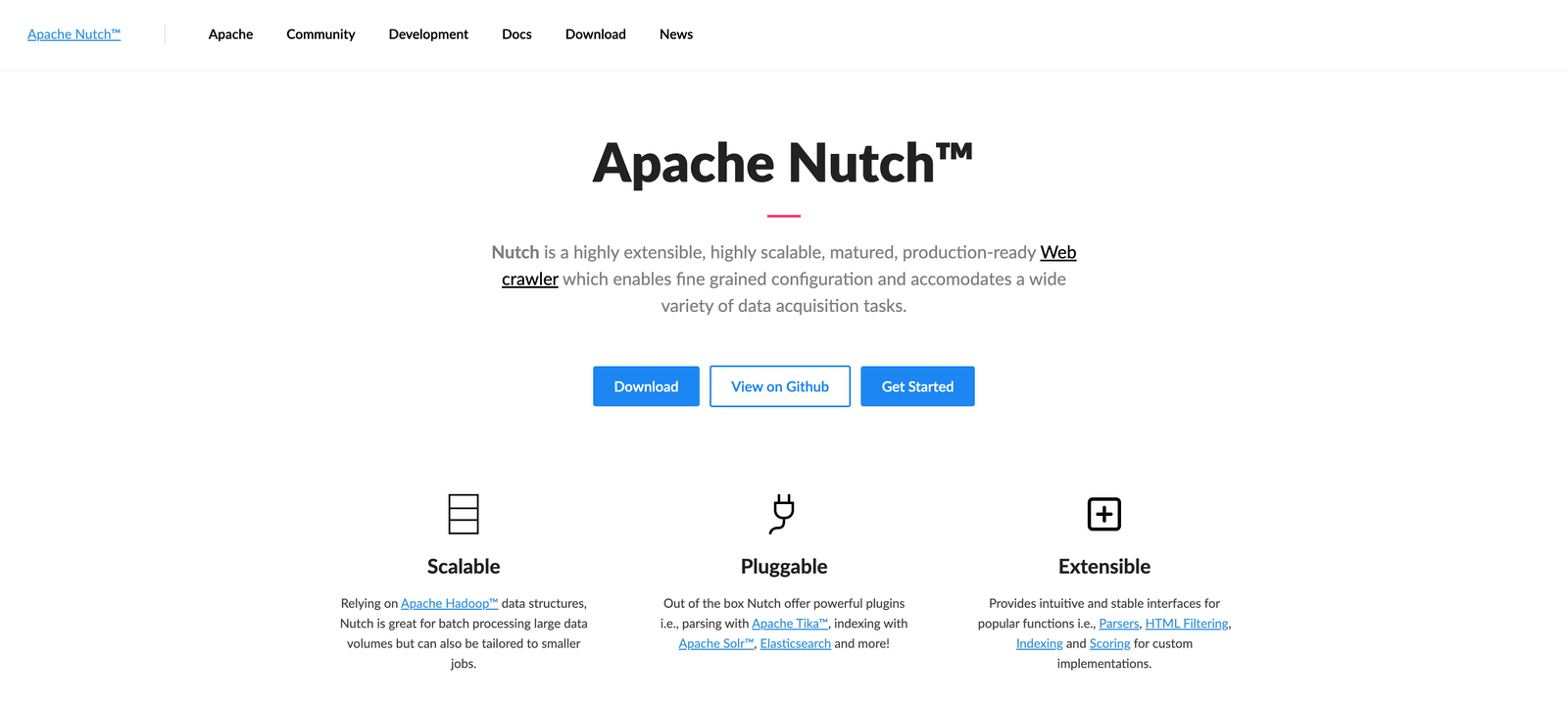
Advantages:
- Highly reliable for continuous, extensive crawling operations given its maturity and focus on enterprise-level crawling.
- Being part of the Apache project, Nutch benefits from strong community support, continuous updates, and improvements.
- Seamless integration with Apache Solr and other Lucene-based search technologies, making it a robust backbone for building search engines.
- Leveraging Hadoop allows Nutch to efficiently process large volumes of data, which is crucial for processing the web at scale.
Disadvantages:
- Setting up Nutch and integrating it with Hadoop can be complex and daunting, especially for those new to these technologies.
- Overly complicated for simple or small-scale crawling tasks, whereas lighter, more straightforward tools could be more effective.
- Since Nutch is written in Java, it requires a Java environment, which might not be ideal for environments focused on other technologies.
Best for: Apache Nutch is ideal for organizations building large-scale search engines or collecting and processing vast amounts of web data. Its capabilities are especially useful in scenarios where scalability, robustness, and integration with enterprise-level search technologies are required.
8. Webmagic
Language: Java | GitHub: 11.4K+ stars | link
Webmagic is an open-source, simple, and flexible Java framework dedicated to web scraping. Unlike large-scale data crawling frameworks like Apache Nutch, WebMagic is designed for more specific, targeted scraping tasks, which makes it suitable for individual and enterprise users who need to extract data from various web sources efficiently.
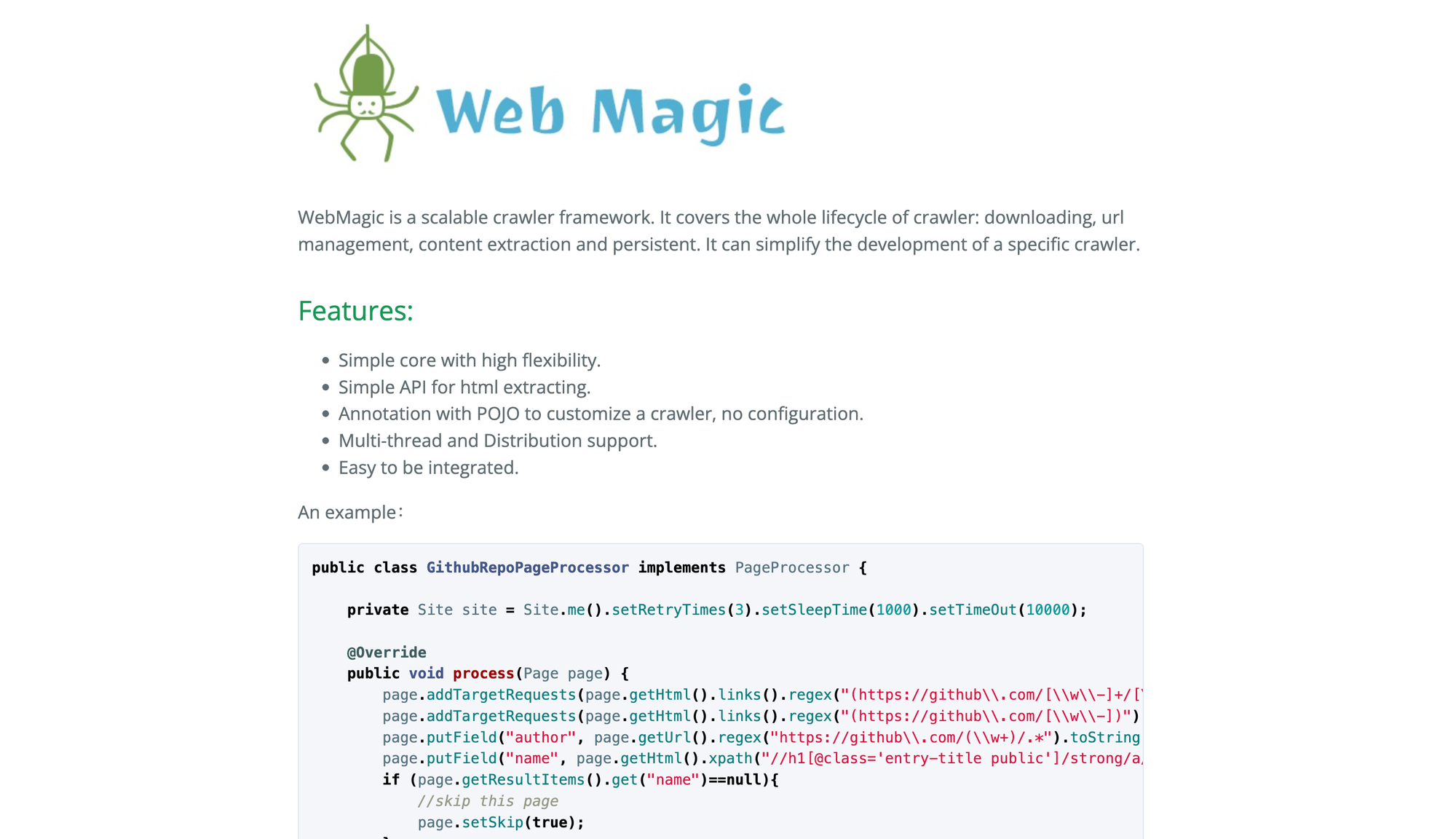
Advantages:
- Easier to set up and use than more complex systems like Apache Nutch, designed for broader web indexing and requires more setup.
- Designed to be efficient for small to medium-scale scraping tasks, providing enough power without the overhead of larger frameworks.
- For projects already within the Java ecosystem, integrating WebMagic can be more seamless than integrating a tool from a different language or platform.
Disadvantages:
- Being Java-based, it might not appeal to developers working with other programming languages who prefer libraries available in their chosen languages.
- WebMagic does not handle JavaScript rendering natively. For dynamic content loaded by JavaScript, you might need to integrate with headless browsers, which can complicate the setup.
- While it has good documentation, the community around WebMagic might not be as large or active as those surrounding more popular frameworks like Scrapy, potentially affecting the future availability of third-party extensions and support.
Best for: WebMagic is a suitable choice for developers looking for a straightforward, flexible Java-based web scraping framework that balances ease of use with sufficient power for most web scraping tasks. It's particularly beneficial for users within the Java ecosystem who need a tool that integrates smoothly into larger Java applications.
9. Nokogiri
Language: Ruby | GitHub: 6.1K+ stars | link
Like Beautiful Soup, Nokogiri is also great at parsing HTML and XML documents via the programming language Ruby. Nokogiri relies on native parsers such as the libxml2 libxml2, libgumbo, and xerces. If you want to read or edit an XML document using Ruby programmatically, Nokogiri is the way to go.
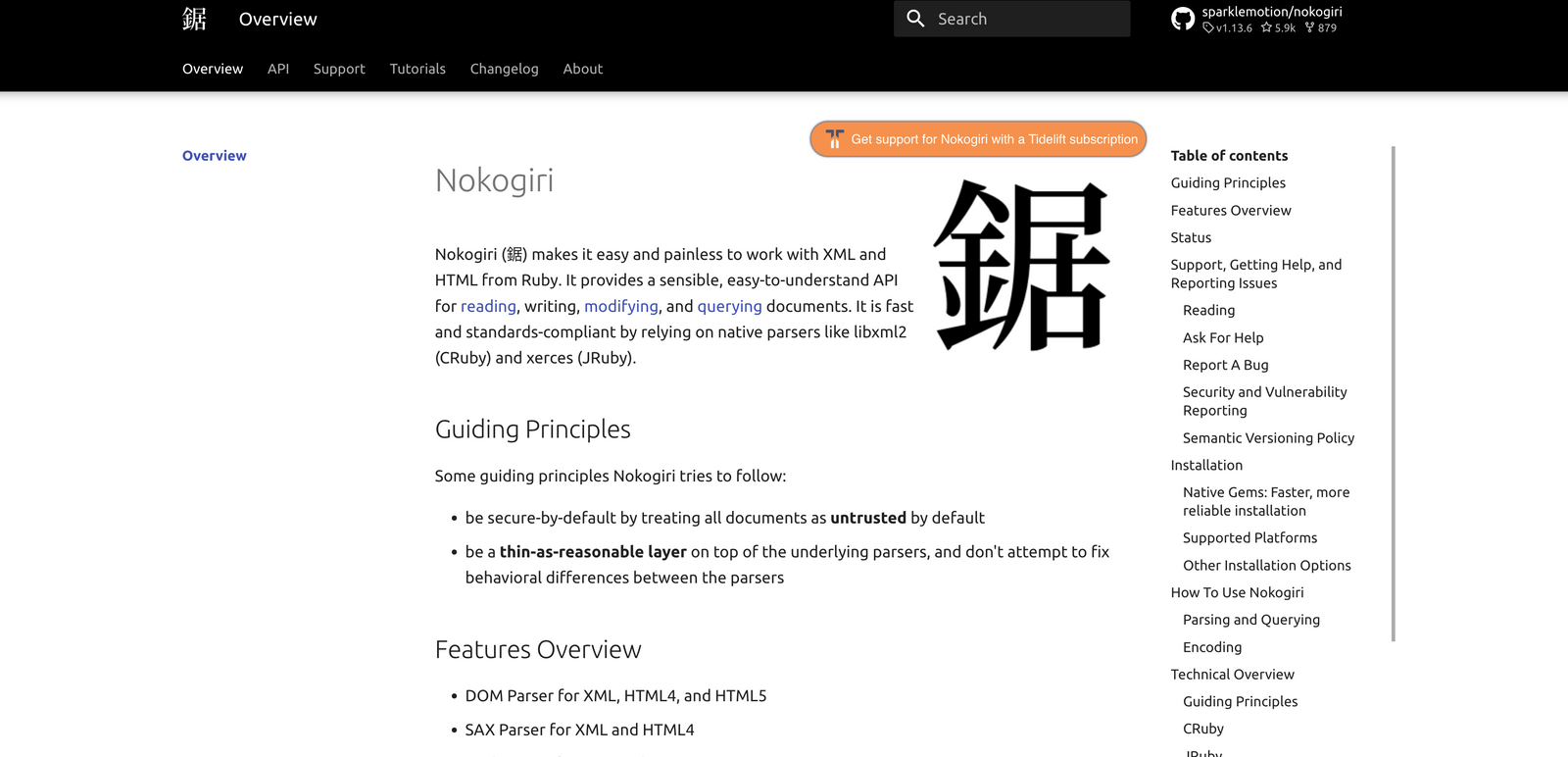
Advantages:
- Due to its underlying implementation in C (libxml2 and libxslt), Nokogiri is extremely fast, especially compared to pure Ruby libraries.
- Able to handle both HTML and XML with equal proficiency, making it suitable for a wide range of tasks, from web scraping to RSS feed parsing.
- Straightforward and intuitive API for performing complex parsing and querying tasks.
- Strong, well-maintained community ensures regular updates and good support through forums and documentation.
Disadvantages:
- Specific to Ruby, which might not be suitable for those working in other programming environments.
- Installation can sometimes be problematic due to its dependencies on native C libraries.
- Can be relatively heavy regarding memory usage, especially when dealing with large documents.
Best for: Nokogiri is particularly well-suited for developers already working within the Ruby ecosystem and needs a robust, efficient tool for parsing and manipulating HTML and XML data. Its speed, flexibility, and Ruby-native design make it an excellent choice for a wide range of web data extraction and transformation tasks.
10. Playwright
Language: Multi-language | GitHub: 67K+ stars | link
Playwright, an open-source Node.js library introduced in 2020, is widely used for automated browser testing and web scraping. It is cross-platform, supports multiple languages like TypeScript, JavaScript, Python, and Java, and works with Chromium, Firefox, and Webkit. Playwright offers unique features for web automation, including headless mode, autowaits, browser contexts, authentication state persistence, and custom selector engines.
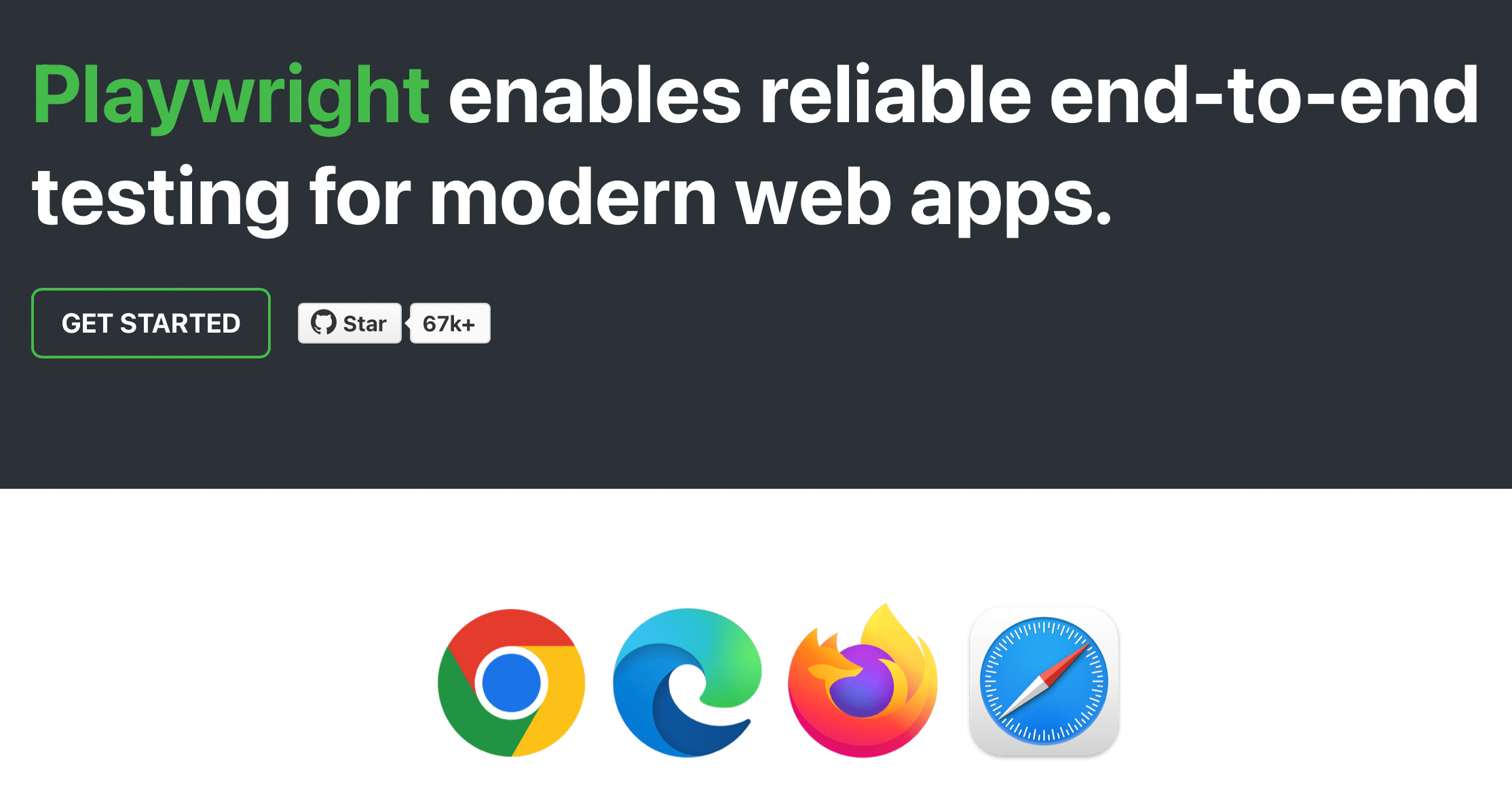
Advantages:
- Playwright supports multiple browsers including Chromium, Firefox, and WebKit, for consistent scraping across different platforms. It can also be utilized with various programming languages such as JavaScript, Python, Java, and .NET, which makes it accessible to a broader range of developers.
- Playwright can operate in headless mode, which reduces resource consumption and allows for faster execution of scraping tasks without a graphical interface. The framework automatically waits for elements to be ready before interacting with them. This reduces the need for manual delays and improves reliability.
- It effectively manages websites that rely on JavaScript and AJAX for content loading, so it's suitable for modern web applications. The framework automatically waits for elements to be ready before interacting with them. This reduces the need for manual delays and improves reliability.
Disadvantages:
- Running multiple browser instances can consume significant system resources, particularly when scraping large volumes of data.
- While capable, Playwright is primarily designed for browser automation and testing rather than dedicated web crawling, which can complicate extensive scraping tasks.
Best for: Playwright is best suited for developers looking to automate interactions with web applications that utilize modern frameworks like React or Angular. Its ability to handle dynamic content makes it ideal for scenarios where traditional HTTP request libraries fall short. It is particularly advantageous in projects that require frequent updates or interactions with complex web interfaces.
11. Katana
Language: Go | GitHub: 11.1k+ stars | link
Katana is a web scraping framework focused on speed and efficiency. Developed by Project Discovery, it is designed to facilitate data collection from websites while providing a strong set of features tailored for security professionals and developers. Katana lets you create custom scraping workflows using a simple configuration format. It supports various output formats and integrates easily with other tools in the security ecosystem, which makes it a versatile choice for web crawling and scraping tasks.
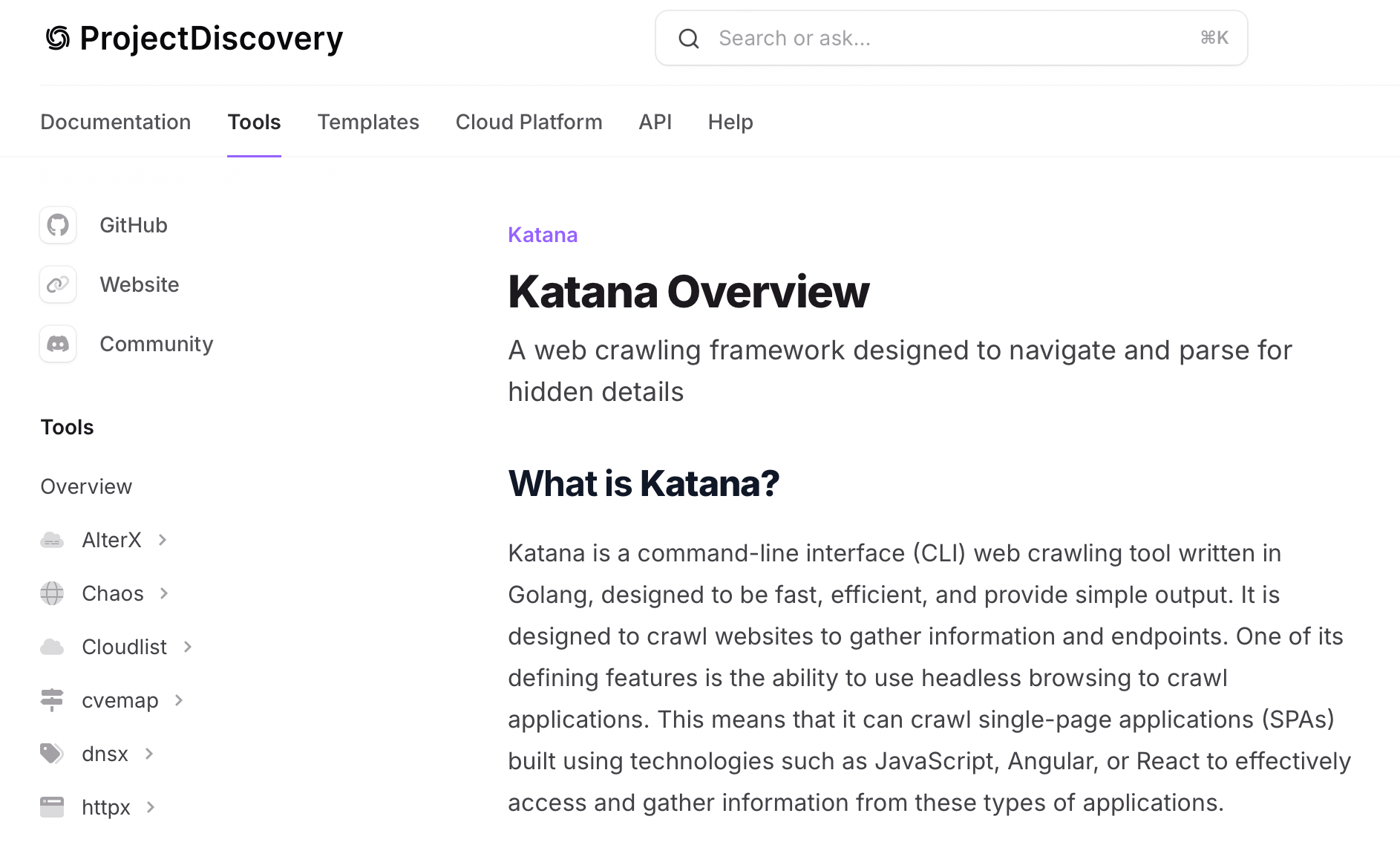
Advantages:
- High performance: Built with efficiency in mind, allowing for fast data collection from multiple sources.
- Extensible architecture: Easily integrates with other tools and libraries, enhancing its functionality.
- Security-focused features: Includes capabilities that cater specifically to the needs of security researchers and penetration testers.
Disadvantages:
- Limited community support: As a newer tool, it does not have as extensive resources or community engagement as more established frameworks.
- Niche use case focus: Primarily designed for security professionals, which may limit its appeal for general-purpose web scraping tasks.
Best for: Katana is best suited for security professionals and developers looking for a fast, efficient framework tailored to web scraping needs within the cybersecurity domain. Its integration capabilities make it particularly useful in security testing scenarios where data extraction is required.
All-in-one crawling and scraping solution: Apify
Apify is a full-stack web scraping and browser automation platform for building crawlers and scrapers in any programming language. It provides infrastructure for successful scraping at scale: storage, integrations, scheduling, proxies, and more.
So, whichever library you want to use for your scraping scripts, you can deploy them to the cloud and benefit from all the features the Apify platform has to offer.
Apify also hosts a library of ready-made data extraction and web automation tools (Actors) created by other developers, which you can customize for your use case. That means you don't have to build everything from scratch.

Note: This evaluation is based on our understanding of information available to us as of December 2024. Readers should conduct their own research for detailed comparisons. Product names, logos, and brands are used for identification only and remain the property of their respective owners. Their use does not imply affiliation or endorsement.




